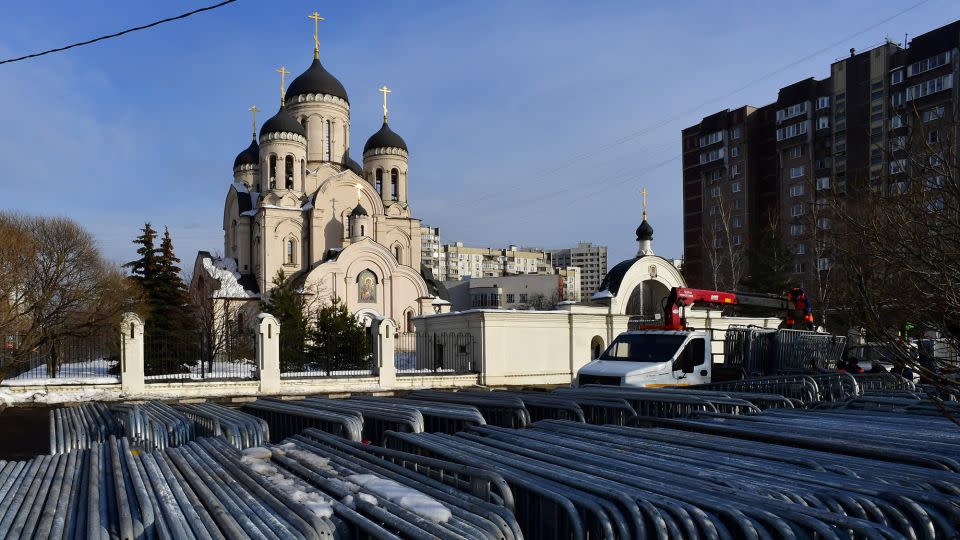Hearse drivers refuse to take Navalny’s body to Moscow funeral, Putin critic’s team say
Attempts to hire a hearse to take the body of Alexey Navalny body to his funeral have been thwarted by unknown people, the Russian opposition leader’s team said Thursday.
Spokeswoman Kira Yarmysh claimed that drivers had been “called by unknown people and threatened not to take Alexey’s body anywhere.”
Yarmysh said she had been told that “no hearse agrees to take the body there.”
Navalny’s team also encountered difficulty hiring a venue for his funeral, which will be held at 2 p.m. local time (6 a.m. ET) Friday at the Church of the Icon of the Mother of God in Moscow’s Maryino district, where the opposition leader lived. He will then be buried at Borisov Cemetery.

Many venues claimed that they were busy, or refused the booking once Navalny’s named was mentioned, while one venue explicitly said they were forbidden from working with Navalny’s team, Yarmysh said Tuesday.
The team had initially planned a public farewell and funeral for the late Russian opposition leader for Thursday, but were told there were “no available cemetery workers who can dig a grave,” said Ivan Zhdanov, the director of Navalny’s Anti-Corruption Foundation, on Wednesday.
Navalnaya blames Putin for husband’s death
Navalny died on February 16 in the penal colony in Siberia where he was serving a 19-year sentence after being found guilty of creating an extremist community, financing extremist activists and various other crimes in August. He was already serving sentences of 11-and-a-half years in a maximum security facility on fraud and other charges he had always denied and claimed were politically motivated.
The Russian prison service said Navalny “felt unwell after a walk” in his Siberian penal colony and “almost immediately” lost consciousness.
Navalny was Russia’s highest-profile opposition leader and spent years criticizing Putin, who has been in power for nearly a quarter of a century, at great personal risk. His death came weeks before the country’s presidential elections scheduled to begin nationwide on March 15, which is widely seen by the international community as little more than a formality that will secure Putin a fifth term in power.
Navalny’s death was met with grief and anger across the world as well as inside Russia, where the smallest acts of political dissent carry huge risks.
He returned to Russia in 2021 from Germany, where he had been treated after being poisoned with Novichok, a Soviet-era nerve agent. On arrival Navalny was swiftly arrested – on charges he dismissed as politically motivated – and spent the rest of his life in prison.
His wife, Yulia Navalnaya, has blamed Russian President Vladimir Putin for her husband’s death.
“Putin killed my husband,” she said during a speech at the European Parliament on Wednesday. “On his orders, Alexey was tortured for three years,” she added, a reference to the time Navalny spent in prison.
“He was starved in a tiny stone cell, cut off from the outside world and denied visits, phone calls. And then even letters. And then they killed him. Even after that, they abused his body,” she said, as Navalny’s team alleges the body was held in order to pressure the family into agreeing to hold a private funeral.
The Kremlin has rejected any allegations of involvement in Navalny’s death.
Navalnaya also said she was concerned that police will crack down on mourners at the funeral on Friday.
More than 400 people were detained at makeshift memorials for Navalny across 32 Russian cities, according to human rights monitoring group OVD-Info.
CNN’s Anna Chernova contributed to this report.
For more CNN news and newsletters create an account at CNN.com


